Illinois Chemical and Laws/Rules/Ethics/Sexual Harassment 30 PDH Discount Package 2
An Introduction to Makeup Water for Industrial Water Systems (H03-006)
An Introduction to Pretreatment Considerations for Water Desalination (H02-006)
An Introduction to Water Desalination (H04-002)
Building Field Capabilities to Respond to Drinking Water Contamination (H03-009)
Calculation of Gas Density and Viscosity (H02-011)
Microbiological and Corrosion Control in Cooling Water Systems (H02-007)
Ozone Treatment for Cooling Towers (M02-002)
Principles of Water Treatment (H03-002)
Reactor Water Chemistry (H03-001)
Sexual Harassment Prevention for Illinois Professionals (IL1-001)
Engineering Laws, Rules, and Ethics for Illinois Professional Engineers (IL2-001)
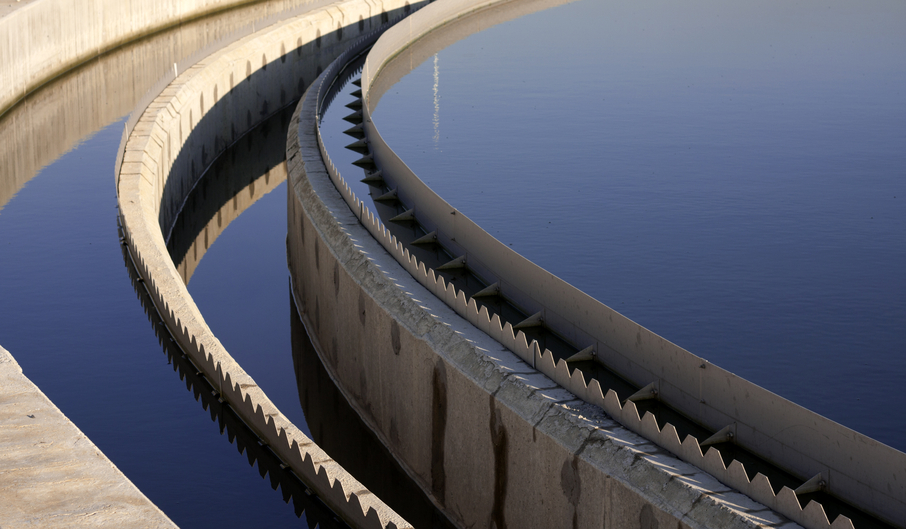
This online engineering PDH course provides an introduction to the technology, systems and design practices for industrial wastewater collection and treatment. Industrial waste should be collected in a manner that avoids unsafe conditions to personnel, equipment and facilities. Industrial wastes should either be pretreated sufficiently to be accommodated in a domestic wastewater collection and treatment system, or provided with a separate collection and treatment system.
Bench scale or pilot plant treatability studies to evaluate the effectiveness of the proposed physical, chemical or biological unit processes may be needed for the design of industrial waste treatment facilities. These studies should be conducted on the waste stream, if available, or on an equivalent waste stream at another facility. As a minimum, jar tests should be conducted prior to chemical process design to determine the reactor design criteria, process control and operating strategy, sludge production, and sludge characteristics.
Using new membrane technologies, consideration must be made for brine generation that can be nonhazardous and discharged directly to a publicly owned treatment works (POTW). Pilot and bench scale studies should simulate the complete series of proposed unit process treatment steps using the same wastewater sample. This will identify any adverse effects of upstream treatment processes on subsequent treatment steps.
This 3 PDH online course is intended for civil and environmental engineers and other design and construction professionals seeking an introduction to the principles of collection and treatment of industrial wastewater.
This PE continuing education course is intended to provide you with the following specific knowledge and skills:
- Understanding the characteristics of conventional and toxic pollutants
- Learning about effluent discharge limits
- Learning about pretreatment regulations
- Learning about isolation and collection systems for chrome and phenol containing wastewaters, for cyanide containing wastewaters, and for mixed acid and alkaline-content wastewaters
- Knowing the approaches to flow and load equalization
- Understanding the principles of equalization basin design and construction
- Learning about limits on biological treatment processes
- Understanding the basics of bioassay procedures
- Knowing the fundamentals of gravity and pressure collection systems for industrial wastewater
In this professional engineering CEU course, you need to review the course document titled, "An Introduction to Industrial Wastewater Collection and Treatment".
Upon successful completion of the quiz, print your Certificate of Completion instantly. (Note: if you are paying by check or money order, you will be able to print it after we receive your payment.) For your convenience, we will also email it to you. Please note that you can log in to your account at any time to access and print your Certificate of Completion.
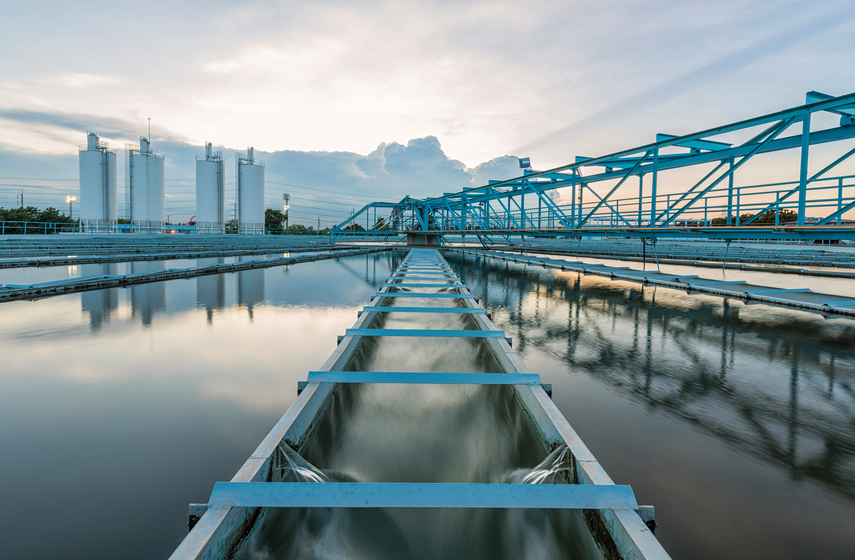
This online engineering PDH course provides an introduction to the techniques and methods for treating makeup water used in industrial water systems.
Many installations use fresh water and, often, potable water. Makeup water, often referred to as "makeup," is fresh water that is added to an industrial water system to replace water lost by blowdown, evaporation, wind drift, leaks, steam, humidification, or withdrawal from these systems. The usual source of makeup water is the installation's potable water supply. This source is water that has been conditioned and is usually of a very uniform quality from day to day. Other sources of makeup water could include groundwater obtained from shallow or deep wells, or surface water from streams or holding ponds. These sources are not treated to the extent that the potable water source is treated. Still another source is reuse water (i.e., water that is "used" and reclaimed and not rated as potable).
This 3 PDH online course is intended for mechanical engineers, civil engineers and other design and construction professionals seeking an introduction to makeup water and makeup water treatment for industrial water systems.
This PE continuing education course is intended to provide you with the following specific knowledge and skills:
-
Learning about different sources of makeup water
-
Understanding the reasons for treating makeup water
-
Knowing the criteria for treating makeup water for high temperature hot water systems
-
Learning about the methods for the removal or reduction of calcium and magnesium impurities from makeup water
-
Understanding how aeration is employed to remove dissolved iron
-
Understanding how to remove dissolved gases such as carbon dioxide, hydrogen sulfide and methane
In this professional engineering CEU course, you need to review the course document titled, "An Introduction to Makeup Water for Industrial Water Systems".
Upon successful completion of the quiz, print your Certificate of Completion instantly. (Note: if you are paying by check or money order, you will be able to print it after we receive your payment.) For your convenience, we will also email it to you. Please note that you can log in to your account at any time to access and print your Certificate of Completion.
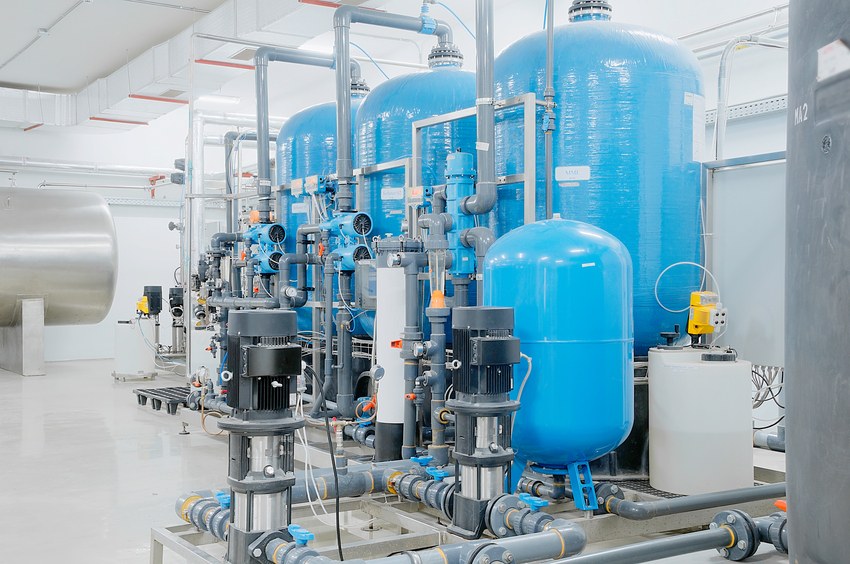
This online engineering PDH course will introduce you to pretreatment techniques, such as solids removal, chemical treatment, filtration, coagulation, pH adjustment, scale inhibition, degasification, deaeration, disinfection and ultraviolet irradiation, at desalination plants.
Water desalination systems may employ different technologies depending on a variety of technical and economic factors. To one degree or another, these technologies may require pretreatment of the feed water stream in order to produce potable water that is healthy and has a pleasant taste.
This 2 PDH online course is intended for mechanical engineers, civil engineers, electrical engineers and other design and construction professionals wanting an introduction to source water pretreatment considerations for water desalination plants. After completion of this course you will be prepared for advanced learning about water desalination to prepare you for desalination project planning and design.
This PE continuing education course is intended to provide you with the following specific knowledge and skills:
- Understanding the principle technologies of water desalination
- Learning about the need for the pretreatment of source water at desalination plants
- Learning about the techniques for solids removal
- Learning about chemical pretreatment processes
- Learning about filtration and coagulation techniques
- Learning about the methods for scale inhibition
- Learning about disinfection using ultraviolet irradiation
In this professional engineering CEU course, you need to review the course document titled, "An Introduction to Pretreatment Considerations for Water Desalination".
Upon successful completion of the quiz, print your Certificate of Completion instantly. (Note: if you are paying by check or money order, you will be able to print it after we receive your payment.) For your convenience, we will also email it to you. Please note that you can log in to your account at any time to access and print your Certificate of Completion.

This online engineering PDH course will introduce you to water desalination technologies, processes and methods. You will learn the importance of site and water source selection. You will be introduced to an approach for selecting the appropriate desalination technology and process. You will learn about distillation/condensation techniques, membrane techniques and ion exchange techniques. You will find out how to develop process concepts, evaluate their utility, and move forward into preliminary design for projects and sites where water desalination is an operational requirement.
This 4 PDH online course is intended for engineers and other design and construction professionals interested in gaining an understanding of the technologies, processes and techniques for treating saline water, such as from the sea, to provide potable or suitable process water to meet the operational requirements of facilities and activities.
This PE continuing education course is intended to provide you with the following specific knowledge and skills:
- Learning about water storage and system modularization
- Learning about the typical desalination flowsheet
- Learning about typical reverse osmosis desalination processes
- Learning about cellulose acetate and polyaromatic amide membranes and their use in membrane desalination processes
- Learning about electrodialysis reversal desalination technology
- Learning the importance of energy conservation and efficiency when evaluating desalination processes
- Learning about high temperature distillation/condensation techniques
- Learning how multiple effect evaporation units are applied
- Learning the characteristics of multistage flash-evaporation units
- Learning about low-temperature distillation processes and how to apply them
- Learning when to use vapor compression techniques in water desalination
- Learning about applications of a multistage flash distillation facility
- Learning about the importance of waste heat recovery evaporation process
- Learning the fundamentals of the vapor-compression vertical-tube distillation system
- Learning the principles of electrodialysis desalination
In this professional engineering CEU course, you need to review the course document titled, "An Introduction to Water Desalination".
Upon successful completion of the quiz, print your Certificate of Completion instantly. (Note: if you are paying by check or money order, you will be able to print it after we receive your payment.) For your convenience, we will also email it to you. Please note that you can log in to your account at any time to access and print your Certificate of Completion.
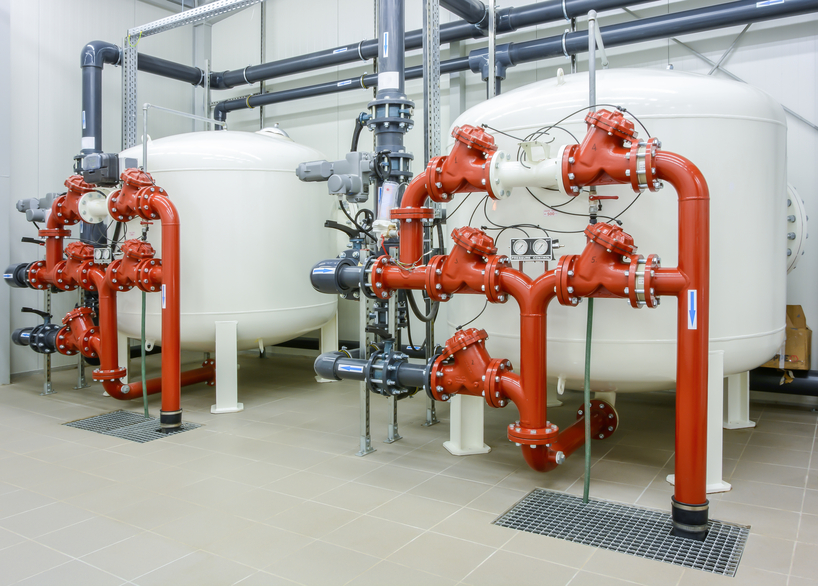
This online engineering PDH course provides guidance on building field capabilities in order to respond to the contamination of drinking water. The course also provides planning and implementation guidance, templates, customizable report forms, and other documentation for Sampling and Analysis (S&A) activities.
When performed in response to possible or credible drinking water contamination, the goal of Sampling and Analysis (S&A) is to confirm or rule out contamination through field and laboratory testing. It is one of the earliest utility-led activities initiated when the utility has activated its drinking water contamination response plan and continues throughout remediation and recovery if contamination is confirmed.
This 3 PDH online course is intended for chemical and environmental engineers as well as others who are interested in learning more about building field capabilities in order to respond to the contamination of drinking water.
This PE continuing education course is intended to provide you with the following specific knowledge and skills:
- Familiarizing with planning and documentation for visual site hazard assessment, sample collection, and sample packaging and shipping
- Familiarizing with planning and documentation for site safety screening, rapid field testing, and hazardous materials packaging and shipping
- Understanding the staffing requirements to perform basic and advanced field activities
- Taking into consideration field response health and safety
- Familiarizing with quality assurance and quality control
- Understanding emergency response procedures
- Familiarizing with the considerations for preparation, placement, and contents of emergency response sampling and analysis kits
Upon successful completion of the quiz, print your Certificate of Completion instantly. (Note: if you are paying by check or money order, you will be able to print it after we receive your payment.) For your convenience, we will also email it to you. Please note that you can log in to your account at any time to access and print your Certificate of Completion.

This engineering online PDH course contains a discussion of, and an example calculation of, the density and viscosity of a specified gas at a given temperature and pressure. In this course, the Redlich Kwong equation will be used for calculation of the compressibility factor of a gas. The Sutherland formula will be discussed and used in example calculations. Another method for calculating the viscosity of air at a specified temperature and pressure will also be presented and discussed.
The density and/or viscosity of a gas is often needed for some other calculation, such as pipe flow or heat exchanger calculations. If the gas temperature is high relative to its critical temperature and the gas pressure is low relative to its critical pressure, then it can be treated as an ideal gas and its density can be calculated at a specified temperature and pressure using the ideal gas law. If the density of a gas is needed at a temperature and pressure at which it cannot be treated as an ideal gas law, however, then the compressibility factor of the gas must be calculated and used in calculating its density. The Sutherland formula can be used to calculate the viscosity of a gas at a specified temperature and pressure if the Sutherland constants are available for the gas.
This 2 PDH online course is intended for chemical, mechanical and environmental engineers. After completing this course, you will have knowledge about methods for calculating the density and viscosity of a gas at specified temperature and pressure.
This PE continuing education course is intended to provide you with the following specific knowledge and skills:
- Ability to calculate the density of a gas of known molecular weight at a specified temperature and pressure at which the gas can be treated as an ideal gas
- Ability to calculate the compressibility factor for a gas at a specified temperature and pressure, using the Redlich-Kwong equation, if the molecular weight, critical temperature and critical pressure of the gas are known.
- Ability to calculate the density of a gas at a specified temperature and pressure for which the gas cannot be treated as an ideal gas, if the molecular weight, critical temperature and critical pressure of the gas are known.
- Ability to calculate the viscosity of a gas at a specified temperature if the Sutherland constant for the gas is known and the viscosity of the gas at a suitable reference temperature is known.
- Ability to calculate the viscosity of air at specified air temperature and pressure.
- Ability to make all of the calculations described in these learning objectives using either U.S. or S.I. units.
In this professional engineering CEU course, you need to review the course document titled, “Calculation of Gas Density and Viscosity”. In addition, you need to review the Excel spreadsheet titled, "Real Gas Density Calculators_US or SI units".
Real Gas Density Calculators_US or SI units (43 KB)
Once you complete your course review, you need to take a multiple-choice quiz consisting of fifteen (15) questions to earn 2 PDH credits. The quiz will be based on both documents.
Upon successful completion of the quiz, print your Certificate of Completion instantly. (Note: if you are paying by check or money order, you will be able to print it after we receive your payment.) For your convenience, we will also email it to you. Please note that you can log in to your account at any time to access and print your Certificate of Completion.
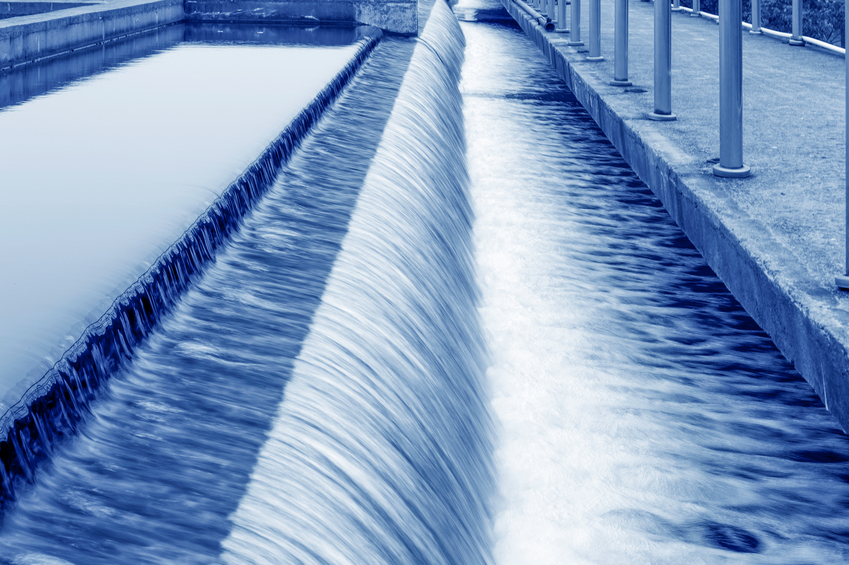
This online engineering PDH course provides an introduction to the design, construction and process control considerations for microbiological and corrosion control in cooling water systems.
Microbiological organisms are composed of three classes: algae, bacteria, and fungus. Large biological organisms such as clams, snails, mussels, or similar species are referred to as macrobiological organisms. The presence of any biological growth can be detrimental to cooling tower operations. Problems include fouling, corrosion, and loss of efficiency. These problems can lead to downtime, higher operating cost, and even premature replacement of equipment. Additionally, some bacteria are pathogenic and can pose a risk to human life. To alleviate these problems, proper implementation of microbiological and corrosion control measures in cooling water systems is imperative.
This 2 PDH online course is intended for civil, environmental and sanitary engineers as well as other design and construction professionals interested in learning about microbiological and corrosion control in cooling
This PE continuing education course is intended to provide you with the following specific knowledge and skills:
- Learning about site specific monitoring programs
- Understanding the fundamental requirements for extraction wells
- Knowing how frequently extraction wells should be monitored
- Understanding the importance of balancing techniques for multiple extraction wells
- Learning about perimeter LFG migration control
- Learning how to address leachate blockage issues at extraction wells
- Understanding the importance of monitoring conditions that may lead to landfill fires
- Learning how to employ LFG monitoring probes
In this professional engineering CEU course, you need to review the document titled, “Microbiological and Corrosion Control in Cooling Water Systems”.
Once you complete your course review, you need to take a multiple-choice quiz consisting of fifteen (15) questions to earn 3 PDH credits. The quiz will be based on the entire document.
Upon successful completion of the quiz, print your Certificate of Completion instantly. (Note: if you are paying by check or money order, you will be able to print it after we receive your payment.) For your convenience, we will also email it to you. Please note that you can log in to your account at any time to access and print your Certificate of Completion.

This online engineering PDH course describes the basics about ozone treatment of cooling towers as a "new technology". Cost benefits of using ozone in treatment of cooling tower water, application considerations, maintenance issues, utility initiatives, performance of cooling tower and laboratory versus case study perspectives are discussed.
The form of oxygen known as ozone has been recognized for nearly a century for its powerful ability to disinfect water. Cooling tower water must be treated to limit the growth of mineral and microbial deposits that can reduce the heat transfer efficiency of the cooling tower. The use of ozone to treat water in cooling towers is a relatively new practice that is increasing in popularity, and it has good potential for use in commercial building systems.
This 2 PDH online course is applicable to mechanical engineers, design and construction personnel, technical staff and facility personnel who are interested in gaining a better understanding of ozone treatment for cooling towers.
This PE continuing education course is intended to provide you with the following specific knowledge and skills:
- Ozone treatment of cooling tower waters
- Cost benefits of using ozone water treatment
- Performance of cooling towers with ozone water treatment
- Maintenance considerations when using ozone water treatment
- Manufacturers and suppliers of ozone generating equipment
- Ozone equipment selections considerations
In this professional engineering CEU course, you need to review the material contained in Ozone Treatment for cooling Tower, DOE/DOD/SERDP.
Upon successful completion of the quiz, print your Certificate of Completion instantly. (Note: if you are paying by check or money order, you will be able to print it after we receive your payment.) For your convenience, we will also email it to you. Please note that you can log in to your account at any time to access and print your Certificate of Completion.

This online engineering PDH course addresses the principles of ion exchange in the context of water purity. It also discusses typical water treatment methods and the basis for these methods.
Water treatment is necessary to remove the impurities that are contained in water as found in nature. Control or elimination of these impurities is necessary to combat corrosion, scale formation, and fouling of heat transfer surfaces throughout facility support systems.
This 3 PDH online course is applicable to chemical and environmental engineers, design and construction personnel, technical staff and facility operators who are interested in gaining a better understanding of the principles of water treatment.
This PE continuing education course is intended to provide you with the following specific knowledge and skills:
- Water treatment processes
- Dissolved gases
- Suspended solids
- pH control
- Water purity
In this professional engineering CEU course, you need to review Module 4, "Principles of Water Treatment" of the Department of Energy Publication DOE-HDBK-1015/1-93, "Chemistry".
Upon successful completion of the quiz, print your Certificate of Completion instantly. (Note: if you are paying by check or money order, you will be able to print it after we receive your payment.) For your convenience, we will also email it to you. Please note that you can log in to your account at any time to access and print your Certificate of Completion.

This online engineering PDH course describes the chemical measures taken to retard the corrosion often found in water systems. It also addresses the consequences of radioactivity on facility cooling water systems.
Radiation synthesis is a process that takes place in the reactor coolant system. This phenomenon is limited to the reactor coolant system because of the high flux (radiation) levels that exist in the core region and further complicate chemistry control of the reactor plant.
This 3 PDH online course is applicable to chemical engineers, design and construction personnel, technical staff and facility operators who are interested in gaining a better understanding of the reactor water chemistry.
This PE continuing education course is intended to provide you with the following specific knowledge and skills:
- Understanding water chemistry parameters
- Understanding the effects of radiation on water chemistry
In this professional engineering CEU course, you need to review Module 3, "Reactor Water Chemistry" of the Department of Energy Publication DOE-HDBK-1015/1-93, "Chemistry".
Upon successful completion of the quiz, print your Certificate of Completion instantly. (Note: if you are paying by check or money order, you will be able to print it after we receive your payment.) For your convenience, we will also email it to you. Please note that you can log in to your account at any time to access and print your Certificate of Completion.

This online PDH course presents a training on sexual harassment prevention in order to adopt and actively implement policies that ensure that workplaces are safe for employees to report and express their concerns about sexual harassment.
The Illinois Human Rights Act makes it a civil rights violation “[f]or any employer, employee, agent of any employer, employment agency or labor organization to engage in sexual harassment.” 775 ILCS 5/2-102(D).
The Illinois General Assembly finds that tolerance of sexual harassment has a detrimental influence in workplaces by creating a hostile environment for employees, reducing productivity, and increasing legal liability. Therefore, every employer in the State of Illinois is required to provide employees with sexual harassment prevention training that complies with section 2-109 of the Illinois Human Rights Act (“IHRA”).
This 1 PDH online course is applicable to professionals licensed in the State of Illinois and who are required to demonstrate continuing professional competency in sexual harassment prevention training as a condition of their license renewal.
This PE continuing education course is intended to provide you with the following specific knowledge and skills:
- Gaining an overview of sexual harassment prevention consistent with the Illinois Human Rights Act
- Familiarizing with types of unlawful sexual harassment, unwelcome behavior and working environment
- Learning about examples of conduct that may constitute unlawful sexual harassment
- Understanding sexual harassment in online environments
- Understanding employer responsibilities in the prevention, investigation, and corrective measures on sexual harassment
- Familiarizing with the Federal and State statutory laws concerning sexual harassment including remedies available to victims
Upon successful completion of the quiz, print your Certificate of Completion instantly. (Note: if you are paying by check or money order, you will be able to print it after we receive your payment.) For your convenience, we will also email it to you. Please note that you can log in to your account at any time to access and print your Certificate of Completion.

This online engineering PDH course presents the laws and rules of ethics and professional responsibility governing the practice of engineering in the State of Illinois.
Engineering ethics is (1) the study of moral issues and decisions confronting individuals and organizations involved in engineering and (2) the study of related questions about moral conduct, character, ideals and relationships of peoples and organizations involved in technological development (Martin and Schinzinger, Ethics in Engineering).
Excerpts from the Professional Engineering Practice Act of 1989, 225 ILCS 325 and the Illinois Administrative Code, Part 1380, which relate to the rules of profession conduct, continuing education requirements, proper use of seal and other pertinent regulatory provisions are presented in this course.
This 2 PDH online course is applicable to Professional Engineers licensed in the State of Illinois who are required to demonstrate continuing professional competency in the Illinois Laws, Rules and Ethics as a condition of license renewal. For each renewal period, every licensee must complete thirty (30) professional development hours, at least one (1) of the 30 hours must be in professional ethics and one (1) of the 30 hours must be in the laws and rules regulating the practice of engineering in the State of Illinois.
This PE continuing education course is intended to provide you with the following specific knowledge and skills:
- Familiarizing with the laws and rules regulating the practice of engineering in the State of Illinois
- Learning about engineering ethics, the rules of professional conduct and responsibility
- Understanding the role of the Illinois Board and its disciplinary authority
- Understanding the continuing education requirements in the State of Illinois
- Gaining an overview of disciplinary cases, violations and their corresponding penalties imposed by the Illinois Board
Upon successful completion of the quiz, print your Certificate of Completion instantly. (Note: if you are paying by check or money order, you will be able to print it after we receive your payment.) For your convenience, we will also email it to you. Please note that you can log in to your account at any time to access and print your Certificate of Completion.